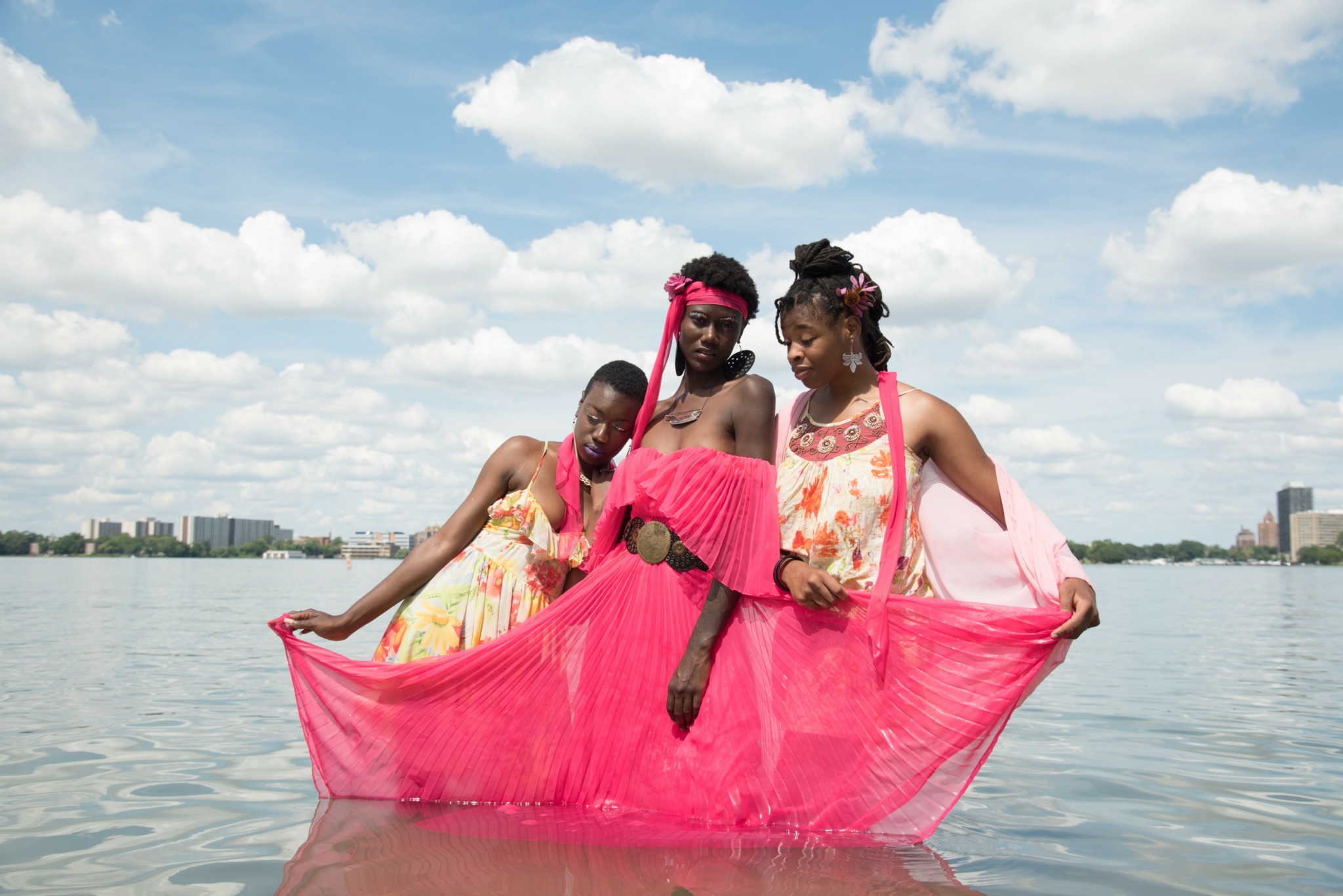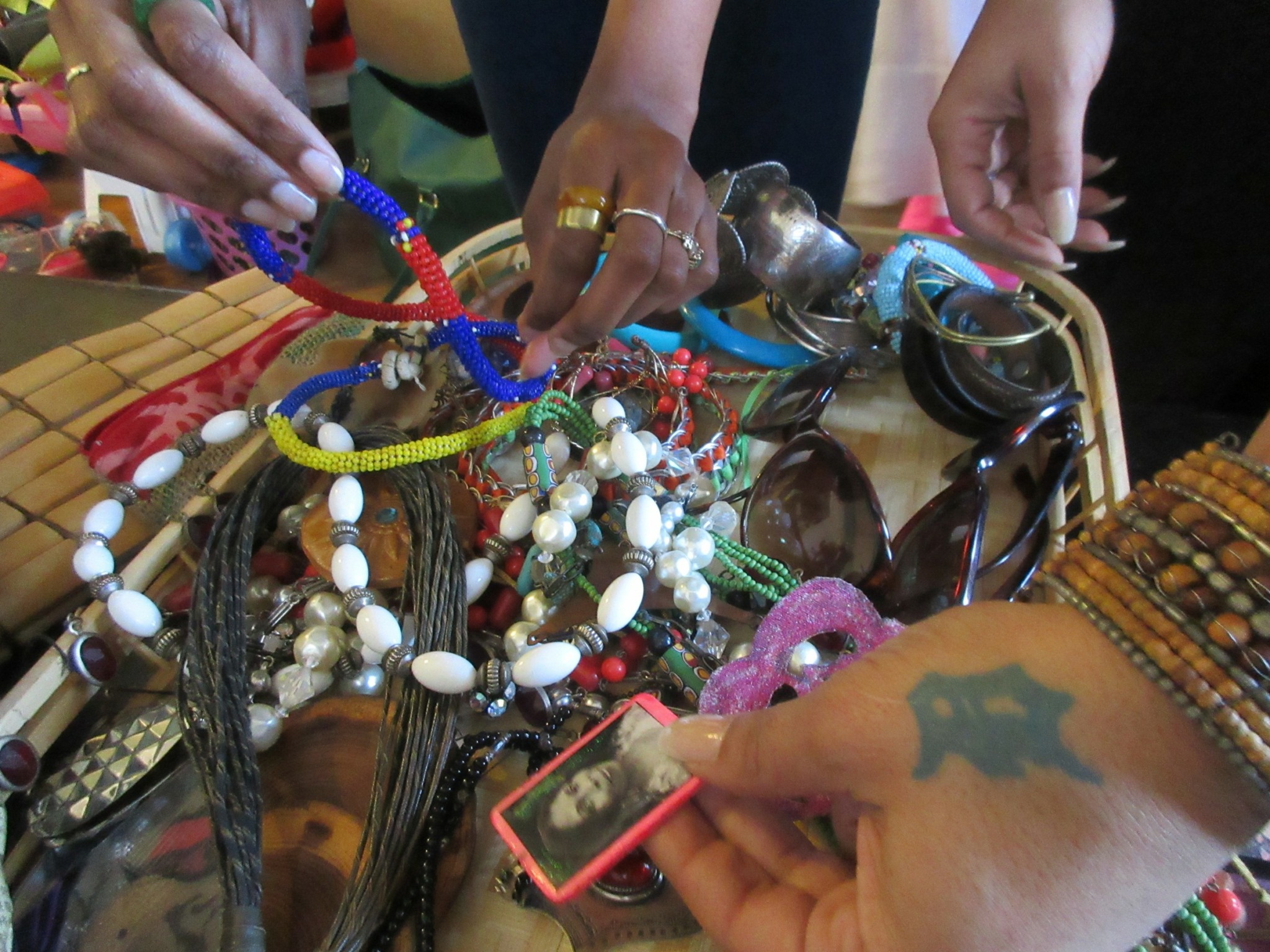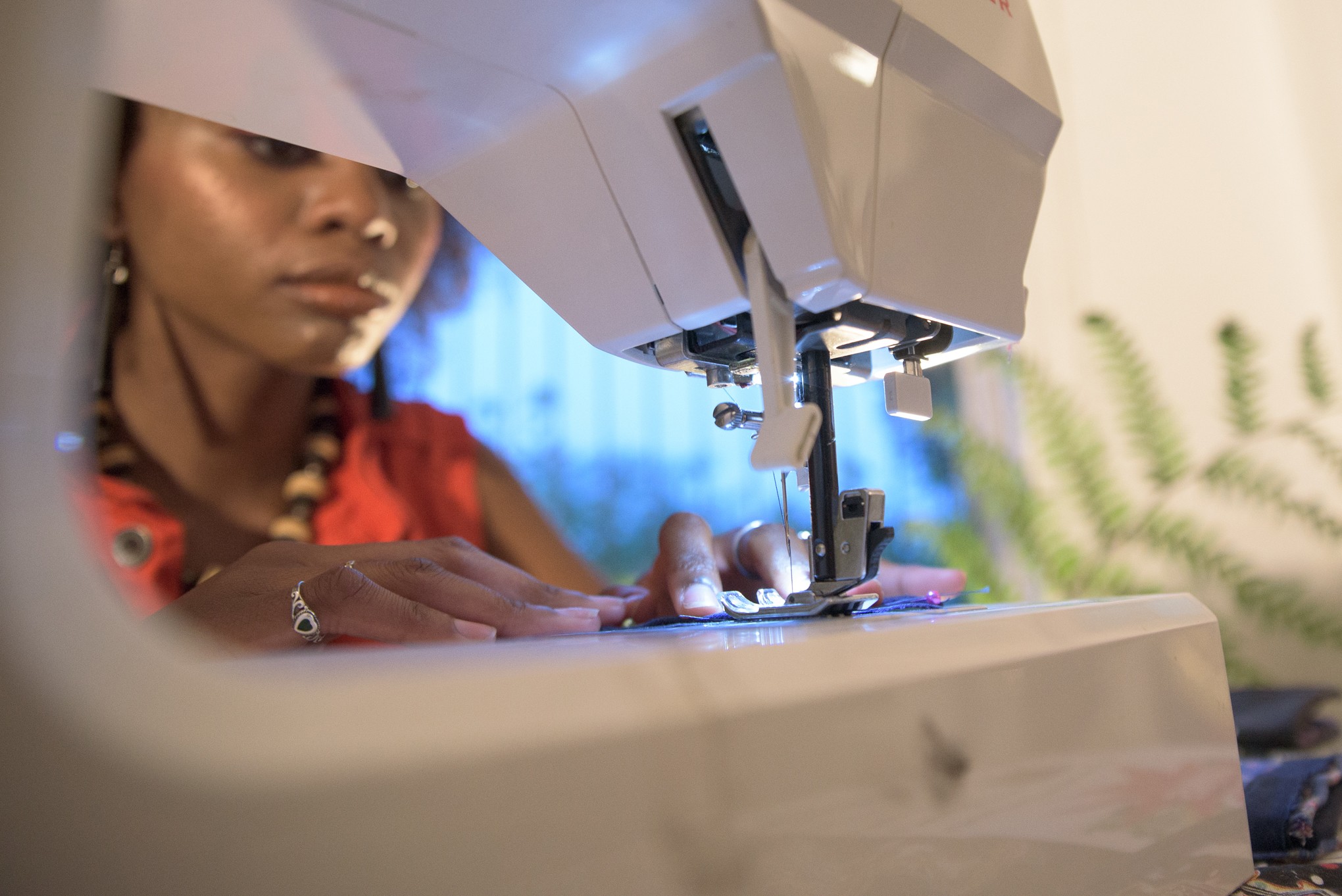We recently connected with Halima Afi Cassells and have shared our conversation below.
Halima Afi, appreciate you joining us today. Are you happy as a creative professional? Do you sometimes wonder what it would be like to work for someone else?
I’m deeply fulfilled and constantly challenged by my life as an artist. I love creative problem-solving, the freedom to think outside the box and the ability to shape most of my waking hours. It’s been over 20 years since I transitioned fully into freelancing as a practicing artist, and every day brings something different. My work shifts throughout the year, often including hosting community arts events and workshops, collaborating with other artists, working with children, researching, hauling equipment to photoshoots, delivering lectures, sketching, collaging, experimenting in my studio and presenting pieces in galleries and museums. I enjoy tapping into different parts of my brain and sharing pieces of myself in a variety of ways through my art.
Alongside my work as an artist, I have another role that’s truly 24/7—being a mom, which is the most important to me. Parenting continually teaches me, especially by giving me the chance to see the world through a child’s eyes, experiencing wonder, awe and the joy of discovering new things.
Looking back on previous jobs, I notice a common thread: they’ve all been a bit unconventional, with irregular hours and a strong focus on human connection. I’ve worked as a lifeguard, hairstylist, bartender, server, real estate professional, project organizer and after-school art teacher. I value freedom, control over my time and meaningful connections.
Earlier this year, I considered applying for a job, perhaps as an assistant professor at an art school or as an arts enrichment teacher at a high school—both could be inspiring paths. For now, I’m still contemplating it.

Awesome – so before we get into the rest of our questions, can you briefly introduce yourself to our readers.
As an interdisciplinary artist, my aim is to create meaningful work that resonates with my life and community. For me, the meaning and memory behind the work matter more than the medium itself. My art helps me explore humanity, capture insights I want to pass on to my children and share practices I hope others might engage with as well.
In recent years, I’ve been drawn to themes of housing and home. I’ve created collages incorporating personal imagery—my grandmother’s roses, mirrors, upholstery—set against cosmic images from the Hubble telescope, flipped houses, concrete cracks and handwritten notes. Framed in ornate gold, with ample white space, these pieces honor the essence of home, challenging the notion of “fair market value.” The home, for me, is a universe, a sacred space fundamental to how we see the world. This theme threads through my work as a fine artist, socially engaged artist, organizer and mother. Beyond framed works, I’ve hosted listening sessions and inspired other artists to explore home and housing. I’ve also used video to encourage thinking about alternative realities and equip people with tools to advocate for housing rights. Through my research, I see that housing crises exist worldwide, often absent in communities where villagers ensure everyone has a place to live, which raises questions about human nature and communal responsibility.
So, yes, I offer unique, one-of-a-kind art for purchase, but each piece represents shared stories, research and careful assembly, resulting from countless hours of creation and introspection.
Beyond my own art, I love hosting creative experiences, such as collage workshops and pop-ups at gatherings-like conferences and celebrations, where people make art together. There is deep wisdom in collective expression and a powerful connection formed when minds, hands and hearts align in bringing a shared vision to life.
I also continue to nurture long-standing projects, including The Free Market of Detroit (FMoD). This decade-long project is essentially a community swap meet where participants can bring items and take what they need for free. We provide sewing machines and supplies, inviting people to mend or alter items to suit their needs. FMoD offers an alternative to consumerism, showing that our needs can often be met outside the confines of corporate markets. Over the years, it has popped up in Detroit, the Caribbean, South America and Africa, and we’re excited to soon open a brick-and-mortar store in Detroit to continue this community-centered practice and challenge traditional views of free-market capitalism.

Is there mission driving your creative journey?
My journey is driven by the pursuit of a thriving, joyful and meaningful life that fosters the well-being of those around me—my family, community and the natural world. I believe in the abundance of God, a lesson my garden taught me years ago. When a tomato plant struggles, producing only one small tomato, within that single fruit are thousands of seeds, each holding the potential for new growth.

What’s a lesson you had to unlearn and what’s the backstory?
There’s no such thing as failure—only lessons. When I returned to Detroit in 2009 after living in New York, I felt like I had failed. I’d completed college, moved to New York and even had a child, but then found myself unexpectedly homeless. Life had been full of ups and downs, a string of jobs and moments of joy painting murals with children in Brooklyn and Far Rockaway. Then, almost overnight, my stability vanished. Thankfully, the “Little Maroons” homeschool community stepped in, showing me a level of generosity I’d never known. A family invited us to share their small, two-bedroom apartment, creating a co-living experience with two adults, four kids and three cats. This was also the first time I exchanged art for essentials, like painting murals in exchange for weekly dinners at a restaurant—a deal I struck three times! I discovered that “oops” paint could be tinted nearly to perfection and bartered my way through, painting signs and murals for store credit and after-school programs. What surprised me most was the sense of empowerment these children gained. For me, it was pure freedom—learning to negotiate for what I needed, creating beauty and living communally, all while becoming a better communicator.
I stayed in New York for six more months before deciding to return to Detroit. This experience taught me more than four years of college ever could, but it took years to feel comfortable enough to share it. I still held onto a sense of shame, thinking I’d failed for not becoming a famous artist in New York, and instead returning to my family home. My path looked different than I’d planned, yet I came away with a gratitude and resilience I’d never felt before.
I’m deeply grateful for all the lessons and for being able to live as an artist embedded in my community in Detroit. I live next door to my sister, and on the other side a neighbor who grew up with my dad. My children have been flanked by an aunt and honorary grandmother on either side for as long as they can remember. I have a home studio and often host artist workshops and gatherings here as well as in community spaces in my neighborhood. In the backyard we are cultivating a garden and food forest, mutually supported by a city-wide network of urban gardeners. And we are currently working to build an artist residency space. The sense of peace and connectedness is priceless. I learned to redefine success in terms of my own thriving, and appreciate each step of my path, carrying the lessons with gratitude and grace.
Contact Info:
- Website: https://www.halimacassells.com
- Instagram: @halima_afi
- Other: https://freemarketofdetroit.us



Image Credits
Photo 1 (headshot): Marsha Music
Photo 2, 3, 5, 7: courtesy of the artist
Photo 4, Photo 6: Desmond Love


